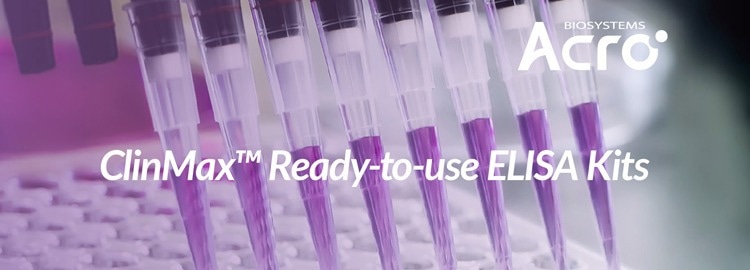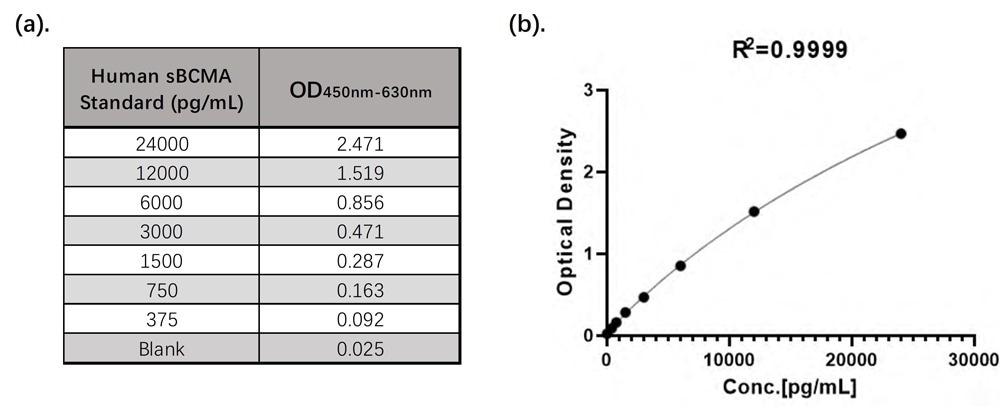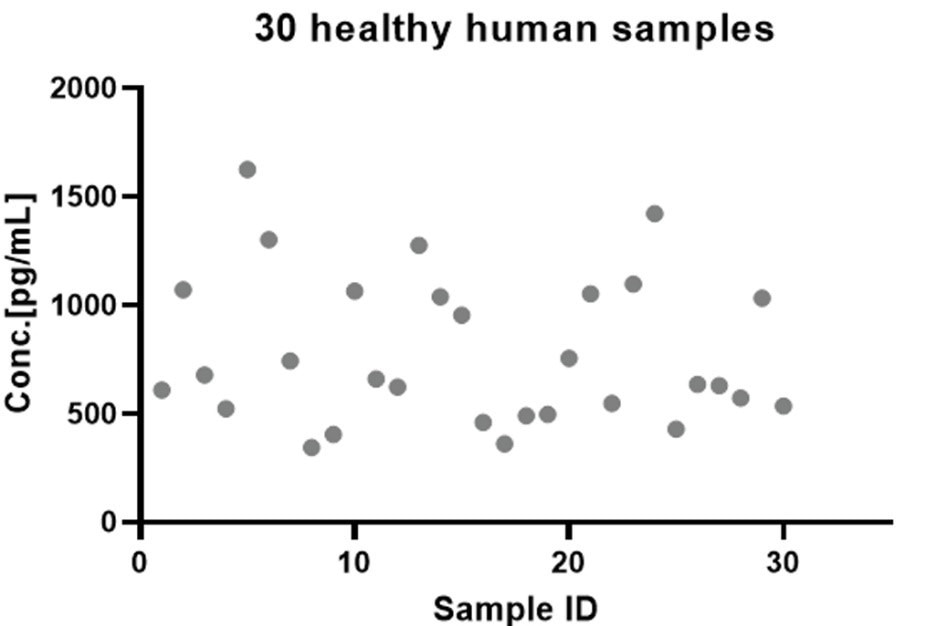B-cell maturation antigen (BCMA) is encoded by the TNFRSF17 gene found on the short arm of chromosome 16. BCMA is a type III transmembrane glycoprotein primarily expressed on the surface of myeloma cells and plasma cells.
Enzymes, such as γ-secretase, are able to cleave and release the extracellular domain of BCMA into the bloodstream as soluble BCMA (sBCMA). It is also possible to shed sBCMA from the cell surface into the bloodstream via extracellular vesicles, for example, exosomes.
Diseases such as multiple myeloma (MM), which see the high proliferation and metabolic activity of tumor cells, prompt a significant increase in BCMA expression and shedding, resulting in elevated sBCMA levels.
Combining these mechanisms results in the accumulation of sBCMA in the blood, a key indicator for disease monitoring and treatment.
BCMA-targeted immunotherapy
Initial studies have revealed that anti-BCMA antibodies demonstrate potent cytotoxic effects on MM cells in vitro. A range of innovative BCMA-targeted immunotherapeutic agents is currently under clinical development, including T-cell engagers (TCEs), CAR-T cells, and antibody-drug conjugates (ADCs). These agents work via several mechanisms:
ADCs
ADCs are internalized after binding to BCMA on the surface of MM cells. This results in the linker being hydrolyzed in lysosomes or endosomes, releasing cytotoxic drugs able to induce tumor cell death.
CAR-T cells
The single-chain variable fragment (scFv) on CAR-T cells is able to bind to BCMA on MM cells, activating CAR-T cells and releasing cytotoxic cytokines in order to kill tumor cells.
TCEs
TCEs promote the crosslinking of T cells with tumor cells by simultaneously binding to CD3 on T cells and BCMA on MM cells. This triggers the activation of T cells, releasing cytotoxic factors to induce tumor cell death.
sBCMA as a key biomarker in immunotherapy
sBCMA is an important biomarker in MM treatment due to its levels directly correlating with disease burden. A range of studies have shown that:
- Elevated sBCMA levels are linked to active MM and high tumor burden.
- Decreased sBCMA levels during treatment generally indicate a good response, while an increase may imply progression or relapse.
- Consistently low sBCMA levels during maintenance therapy indicate long-term disease control, while higher baseline levels are linked to a poorer prognosis.
Changes in sBCMA levels can also act as quantitative indicators for BCMA-targeted immunotherapy. For example, a decrease in sBCMA suggests that treatment is proving effective, while an increase typically precedes imaging or clinical evidence of relapse, supporting early intervention.
Negative impact of high sBCMA levels as a decoy target
sBCMA is a critical biomarker, but high levels of sBCMA could potentially interfere with the efficacy of BCMA-targeted therapies as a result of competitive binding. This can have a number of adverse effects.
Reduced drug binding efficiency
There is a risk of high concentrations of sBCMA competitively binding to targeted drugs, limiting their binding opportunities with tumor cells. For instance, sBCMA may sequester ADCs, reducing their capacity to deliver cytotoxic drugs to tumor cells.
Blocked immune activation
sBCMA has the potential to obstruct key interactions required for T-cell activation and tumor cell killing. Excessive sBCMA can also saturate TCEs or CAR-T cells, hindering their capacity to connect T cells with tumor cells and reducing antitumor effects.
Adversely affected pharmacokinetics
sBCMA binding to therapeutic antibodies has the potential to accelerate drug clearance, reduce half-life, and change distribution, resulting in insufficient drug efficacy.
Conclusion
sBCMA plays an important dual role in MM treatment: it is a key biomarker for disease monitoring and the evaluation of treatment response, but its high levels may interfere with the efficacy of BCMA-targeted immunotherapy via a problematic decoy effect.
It is advisable that future strategies focus on drug design optimization, the development of adjunctive therapies, or an exploration into alternative targets in order to overcome the adverse effect of sBCMA. These approaches will be key to enhancing treatment outcomes as research continues.
ACROBiosystems has launched the ClinMax™ human soluble BCMA ELISA kit in order to help accelerate the clinical development of BCMA-targeted drugs. This kit empowers clinical research thanks to three core advantages:
- Real sample validation: The kit has been tested with a range of genuine samples in order to ensure accurate and reliable results.
- Matrix interference optimization: The kit overcomes the limitations of complex biological matrices, ensuring that experiments are reproducible and stable.
- Ready-to-use design: The kit features pre-coated plates and standardized procedures, allowing for immediate experimentation, saving precious time and improving efficiency.
ACROBiosystems aims to streamline research and development into BCMA-targeted therapies via its comprehensive portfolio of innovative technology, simultaneously enhancing data quality and drug development efficiency, and safeguarding vital breakthroughs.

Validation data
ClinMax™ Human Soluble BCMA ELISA Kit (CEA-B045)
Linear range

Figure 1. (a). CEA-B045 Linearity Range Data; (b). CEA-B045 4PL Standard Curve. Image Credit: ACROBiosystems
Sample values

Figure 2. Quantification of sBCMA in Human Serum via CEA-B045 ELISA Kit. Image Credit: ACROBiosystems
Acknowledgments
Produced from materials originally authored by ACROBiosystems.
About ACROBiosystems
ACROBiosystems is a cornerstone enterprise of the pharmaceutical and biotechnology industries. Their mission is to help overcome challenges with innovative tools and solutions from discovery to the clinic. They supply life science tools designed to be used in discovery research and scalable to the clinical phase and beyond. By consistently adapting to new regulatory challenges and guidelines, ACROBiosystems delivers solutions, whether it comes through recombinant proteins, antibodies, assay kits, GMP-grade reagents, or custom services. ACROBiosystems empower scientists and engineers dedicated towards innovation to simplify and accelerate the development of new, better, and more affordable medicine.
Sponsored Content Policy: News-Medical.net publishes articles and related content that may be derived from sources where we have existing commercial relationships, provided such content adds value to the core editorial ethos of News-Medical.Net which is to educate and inform site visitors interested in medical research, science, medical devices and treatments.